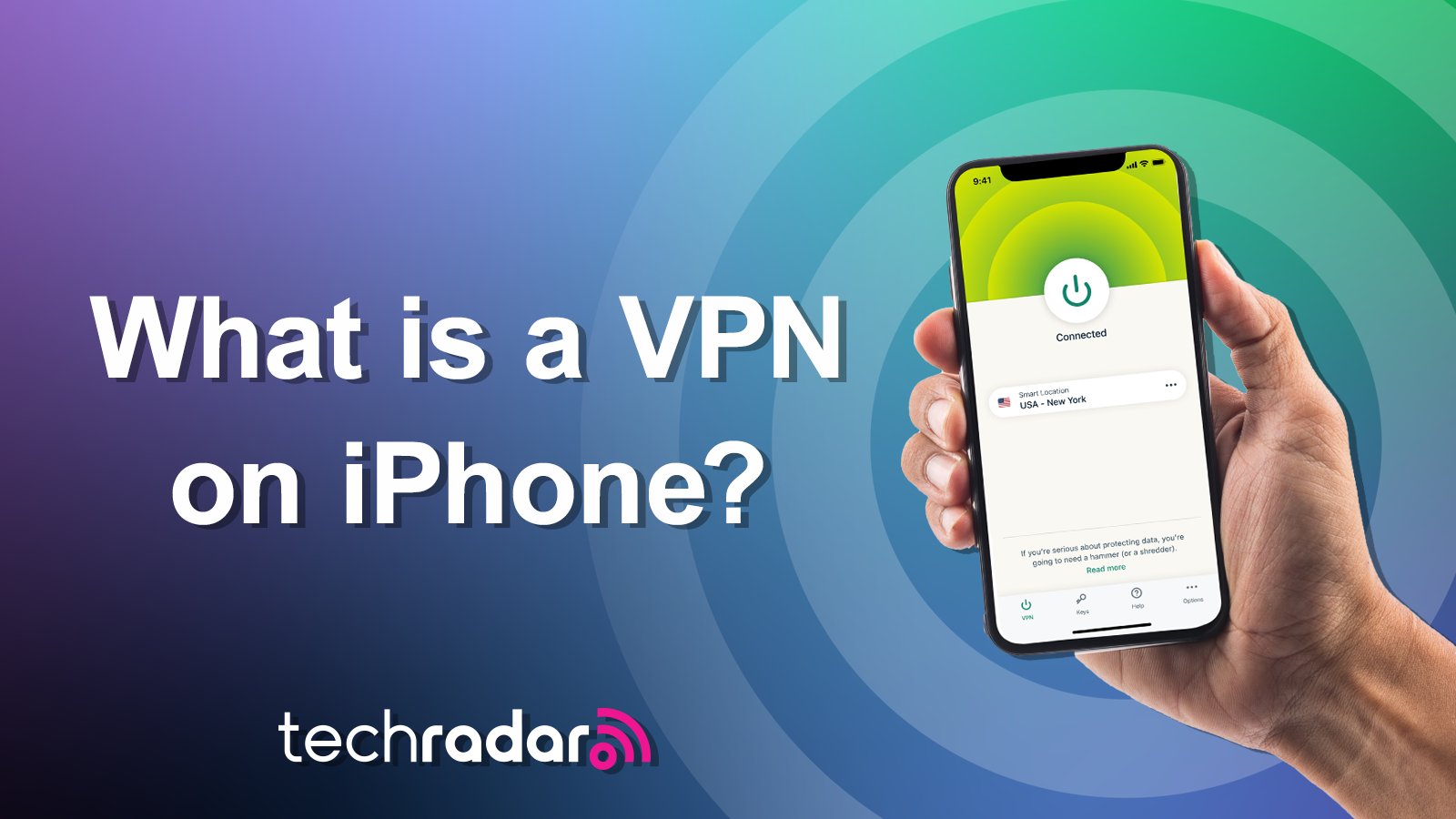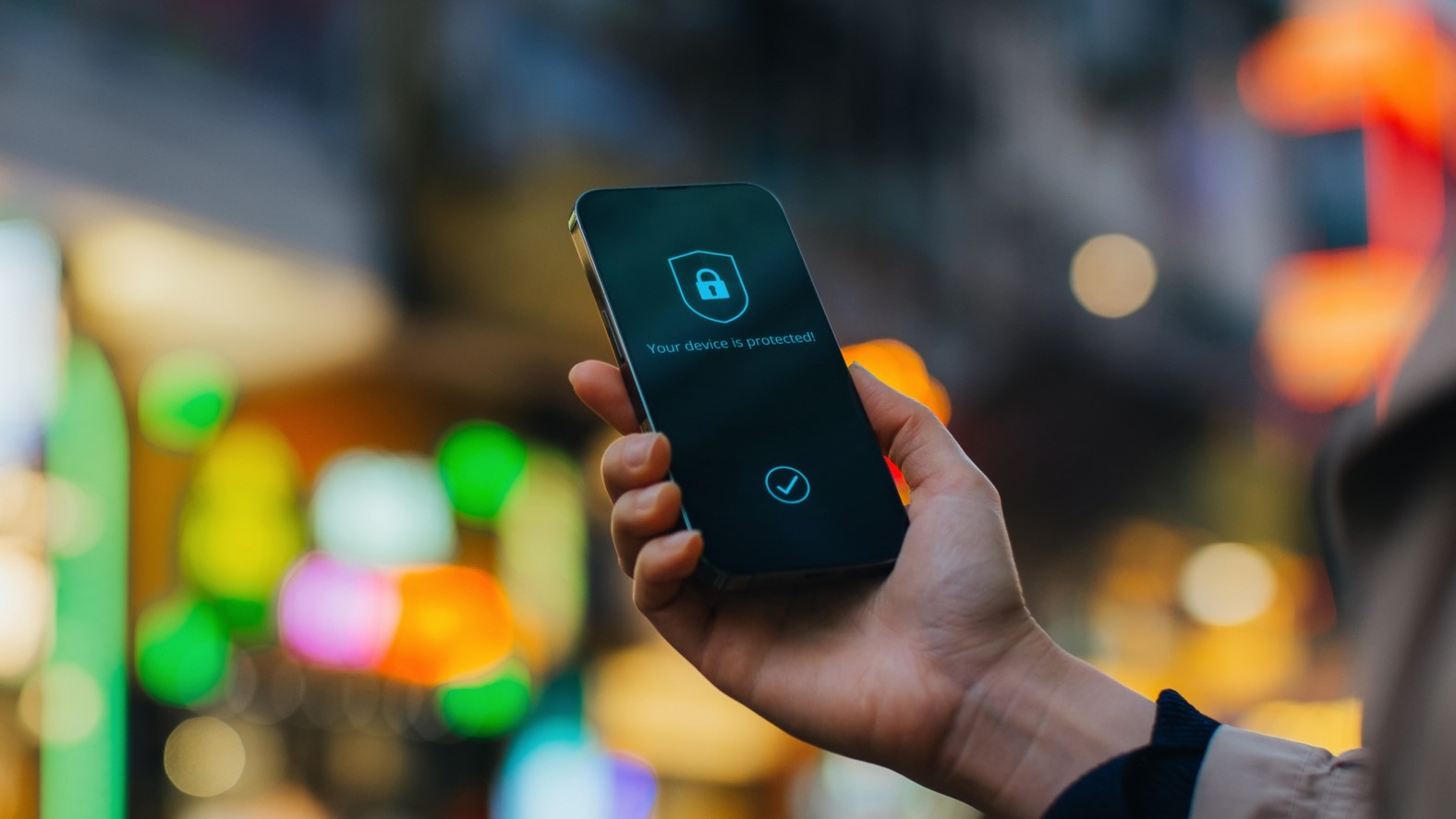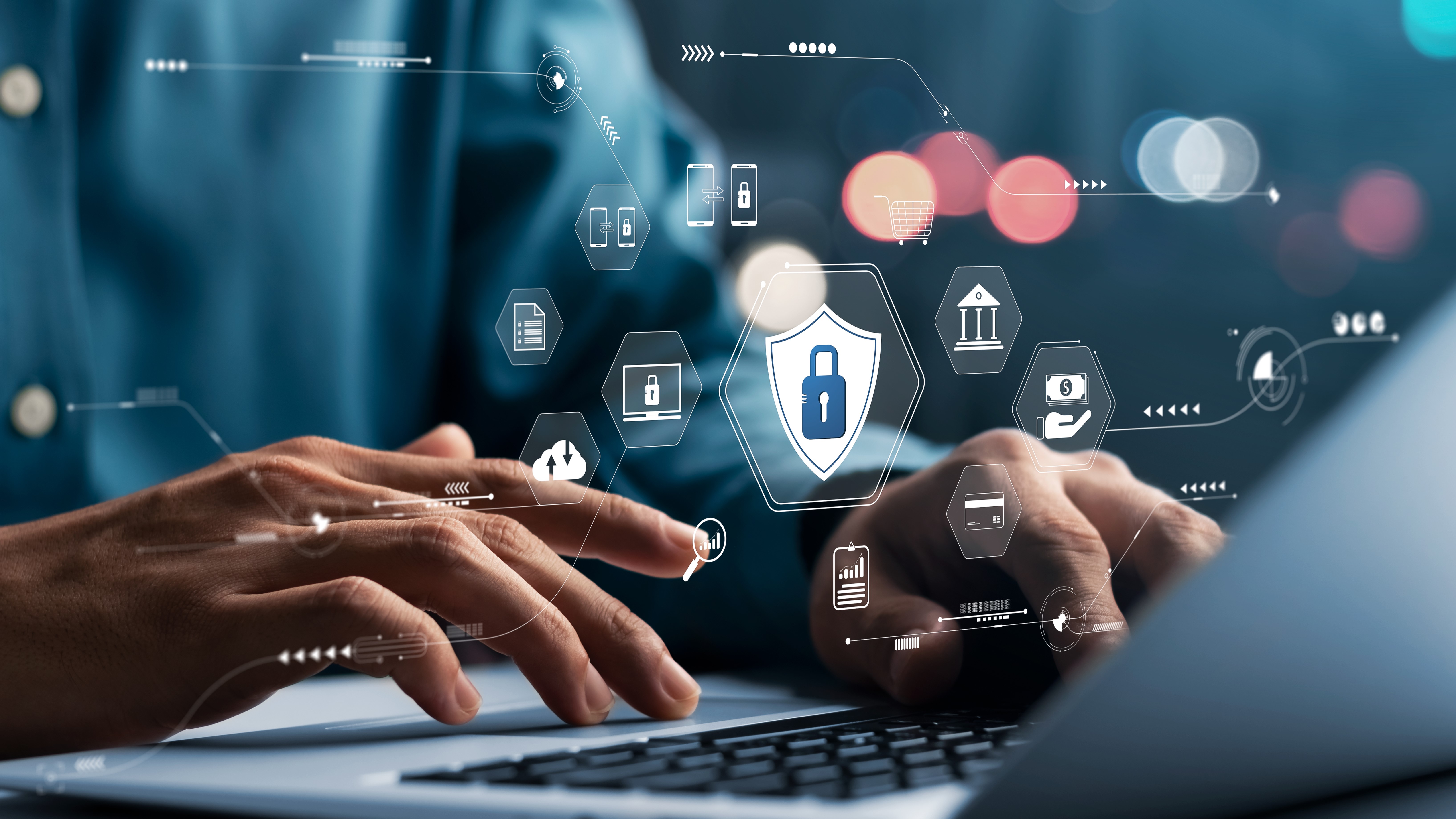
If you're the proud owner of an iPhone, you probably know that Apple takes digital privacy very seriously. The tech giant has faced down other titans, like Facebook, to protect user data.
Still, despite Apple's best intentions, it seems some data is still collected for diagnostic purposes—and this could put you and your privacy at risk. The internet is jam-packed with threats, like bad actors and malware, and the App Store itself can be targeted by cybercriminals keen to target your logins and financial details.
Despite these dangers, some iPhone users are hesitant to shore up their security with the help of an iPhone VPN. Whether it's down to unfamiliarity with the software or a belief that Apple products are "immune" to cyber-danger, not using a VPN means that your iPhone (and the data it holds) just isn't as safe as it could be.
What is a VPN?
In a nutshell, a VPN is a handy bit of software that keeps your device secure while you surf the web. The best VPNs (and reliable free VPNs) create a tunnel between your iPhone and a server run by the VPN, encrypting any data that travels through it, making it totally unreadable to any nosy third parties or malicious hackers. As a result, you'll have improved digital privacy and security.
A VPN also gives you a new, temporary IP address, which makes it look like you're accessing the web from a different device somewhere else in the world. This is a nifty feature, as it'll help you unblock geo-restricted content on Netflix (and other streaming platforms).
Why do I need a VPN?
There are plenty of providers available in the App Store and even more reasons to invest in a VPN. One of the biggest is the fact that we're glued to our phones these days, let's admit it, and use them for everything from sending messages and emails, checking our bank accounts, and buying tons of stuff we may or may not actually need.
The convenience is great, but think of how often you input login details or financial info. Cybercriminals are hungry for this data, and without a VPN's encryption, you could find yourself leaking this all-important info or making it readily available to bad actors.
Sign up to the TechRadar Pro newsletter to get all the top news, opinion, features and guidance your business needs to succeed!
We put the industry's top contenders to the test to find the best secure VPN—and some very worthy runners-up.
If you're an iCloud subscriber, you might think you have nothing to worry about thanks to the Apple Private Relay. There's some merit to this assumption; the service boosts security for folks who have previously connected to the internet directly, forcing apps using insecure connections to send data through the Relay, where it's subsequently encrypted.
Unfortunately, Apple Private Relay isn't the all-in-one security solution some like to believe. It doesn't encrypt your web traffic, meaning data that comes to or from your iPhone is susceptible to interception without a VPN. Plus, Apple Private Relay is pretty easy to block.

The iOS operating system isn't open source, either, and Apple keeps quiet about how it codes the Private Relay feature. That means we're left in the dark about which servers it uses, where they're based, and what encryption methods are used. It's a lot to take on trust.
Then, there are the risks of browsing the web without a VPN that aren't specific to iPhones, and these include:
- Throttled speeds: if you're doing a lot of HD streaming, online gaming, or torrenting, your internet service provider (ISP) might decide that you're using too much bandwidth. If this is the case, it can slam the brakes on your connection speed to try and alleviate the pressure.
- Ads and trackers: we've all seen those suspiciously specific ads pop up in our tabs, right? The sites you visit can leverage your IP address, your approximate location, and browsing habits to build up a profile, which they'll use to create these eerie targeted ads.
- Unsecure public Wi-Fi: the free hotspots you find in cafes, airports, and hotels are handy when you're on the go, but they're notoriously risky. Why? Well, they often lack appropriate security measures, making it that much easier for opportunistic hackers to collect your logins and financial information.
- Geo-restrictions and blocks: by now, you're probably aware that different countries get different Netflix shows. This is thanks to licensing agreements that restrict content by region. Unfortunately, that can make it tricky to keep up with your favorite shows or sports teams if you're traveling abroad.
How to choose a VPN
A quick Google search and a flick through the App Store will reveal hundreds of VPNs—and it's not always obvious which ones are worth your hard-earned cash. Luckily, we've picked out the most reliable iPhone VPNs (as well as the best Android VPNs for the rebels in your friend group).
If you want to do some shopping around, however, there are a few things to keep in mind. Firstly, what's your use case? Do you need a VPN to unblock streaming sites on your iPhone? Are you on the hunt for a torrenting VPN? Or are you just looking for a way to stay secure on the go?
Whether it's one of these things or all of them, here are the factors and features to look out for when choosing a VPN for your iPhone.
iPhone apps: this one's a no-brainer, but some VPNs have feature-packed and sleek apps for desktop, and then totally neglect their iPhone users. You'll want a VPN that offers an easy-to-use iOS app—and one that's compatible with the other gadgets in your house, too.
Performance: nobody wants a slow iPhone, and some VPNs can really hamper your overall connection speeds. The fastest VPNs have a negligible impact on your performance, however, and can keep up with data-intensive tasks like HD streaming.
Security: considering how many hackers, scammers, and dodgy sites there are on the web, security should be a priority for any prospective VPN user. Make sure your provider offers modern WireGuard encryption and sticks to a no-logs policy.
Price: there are VPNs available at all price ranges; from next to nothing to eye-wateringly expensive. Fortunately, it's more than possible to bag a cheap VPN that has all the tools you need to shore up your security.

How to install a VPN
If you're new to the world of VPNs, you might be a little daunted by the setup and installation process—but don't worry. Getting started with an iPhone VPN couldn't be simpler.
- Create an account: once you've picked a provider, head to its website and sign up for an account. Some VPNs might ask you to choose your subscription tier and payment details here, too.
- Download the iPhone app: there will likely be a button presented to you once you've signed up that will direct you to the App Store. While there are fewer copycat apps on iOS than Android, it's always best to head through from the VPN website rather than searching for yourself.
- Run through installation: the VPN should walk you through this process with easy-to-follow on-screen instructions, and prompt you to log in to your account.
- Confirm your subscription: if you haven't already, here's where you'll need to pick out a plan and pay for it. You'll probably save more in the long run if you go for a multi-year subscription, and most providers offer money-back guarantees.
- Get connected: here's where the fun starts. Hit the connect button to be paired up with an optimal server, or choose your own via the list, and then get out there on the web and enjoy boosted privacy and an end to geo-restrictions.
Using a VPN's client software means you can check out special features—like ExpressVPN's proprietary protocol, Lightway—that might otherwise be unavailable.
It's also worth noting that downloading a VPN via the App Store is extremely safe. Apple goes to some lengths to ensure developers are who they say they are, and that apps are verified by digital signatures. So, if an app says that it's offered by ExpressVPN, for example, you can be certain that it's true.
We test and review VPN services in the context of legal recreational uses. For example: 1. Accessing a service from another country (subject to the terms and conditions of that service). 2. Protecting your online security and strengthening your online privacy when abroad. We do not support or condone the illegal or malicious use of VPN services. Consuming pirated content that is paid-for is neither endorsed nor approved by Future Publishing.

River is a Tech Software Editor and VPN expert, helping take care of cybersecurity content on TechRadar, ranging from reviews, buying guides, and must-have VPN deals. River's expertise in the cybersecurity field opened their eyes to the startling amount of online snooping we accept into our daily lives. Now, River is committed to fighting for your right to digital privacy by shining a light on its biggest threats – and helping readers safeguard their data with the help of a VPN. Surfshark is River's favorite VPN, and they use it every day to keep their most sensitive details out of the hands of third-party trackers.